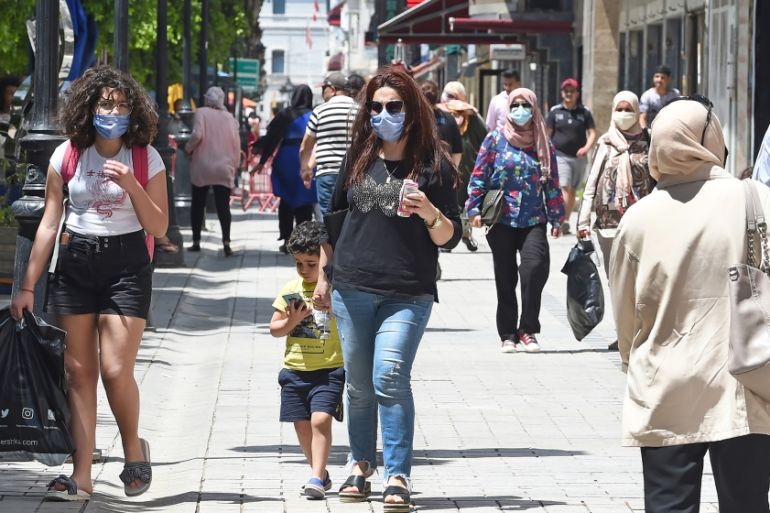Tunisia relaxes curfew with coronavirus outbreak slowing
Government had imposed a curfew and lockdown in March in an attempt to contain the spread of the coronavirus.

Tunisia has shortened its nightly curfew after three consecutive days without recording any new coronavirus cases and as the government relaxes a general lockdown.
The North African democracy imposed the curfew in March, aiming to slow the spread of the virus by keeping people at home, combined with a lockdown that shuttered all but key shops and services.
Keep reading
list of 3 items‘We want to be proactive’: Tunisia gears up to battle coronavirus
The world from space in COVID-19
President Kais Saied has cut the curfew hours to 11pm to 5am instead of 8pm to 6am, state news agency TAP reported on Wednesday, 10 days after the start of a gradual reopening of the bureaucracy and economy.
It follows the government’s announcement that no new coronavirus cases have been recorded for three days in a row, with 1,032 confirmed cases in total and 45 deaths.
However, Jalila Ben Khelil, a member of the government’s advisory committee on the coronavirus crisis, said that though the restrictions had been eased, they could be brought back if necessary.
“We are afraid of a new wave if there is slackness, and people continue to disregard and disrespect social distancing by crowding public places,” she said by phone.
Only five patients with COVID-19, the disease caused by the new coronavirus, are still in hospital in Tunisia, Ben Khelil said, attributing the country’s success in controlling the outbreak to fast, aggressive public health measures.

The government has so far kept in place many restrictions on movement including the closure of schools, mosques, cafes and restaurants.
Tunisia entered the crisis with only 500 intensive care beds equipped with ventilators, and the government said at the start of the outbreak that the health system would struggle to cope with more than 5,000 cases.
It has added another 100 intensive care beds, including with the construction of a temporary facility at a sports centre in Tunis, and has improved readiness at public hospitals around the country, Ben Khelil said.
City and town centres have become far busier since the lockdown was relaxed to allow a wider range of shops to open, with crowded markets and even busy public beaches.
Prime Minister Elyes Fakhfakh said in a television interview on Tuesday that the government would require about 5bn euros ($5.4bn) in external funding this year, double the amount previously expected.